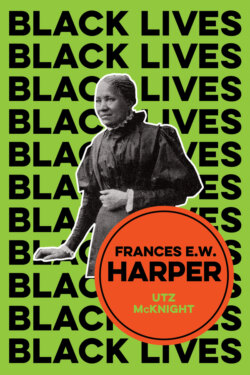Читать книгу Frances E. W. Harper - Utz McKnight - Страница 9
Frances Harper in the 1840 and 1850s
ОглавлениеIf we take the newly rediscovered volume of verse, Forest Leaves, as having been published sometime between 1846 and 1849 (Ortner, 2015), Frances Harper was between 21 and 24 when she published her first volume of verse. She no doubt wrote poetry before this, but in the extant letters from the period there is evidence of some reluctance on the part of publishers to publish the poems. Her childhood education at the Academy and experience as a servant in a household with an extensive library that she was given permission to peruse in her free time, and the exposure to poetry readings and public speeches in the abolitionist social community of which her uncle and aunt were a part, provided the opportunity for Frances Harper to develop her craft. In this, but for the material differences in our lives today from hers, Frances Harper had what many today would think of as those influences necessary to create a poetic muse.
Her uncle William had been at the center of the development of the Abolitionist Movement in Baltimore for decades, and was an active contributor to the publishing of writings in support of the Movement. His house was a frequent location for meetings with other central figures of the growing Abolitionist Movement, such as Willian Lloyd Garrison. One of William’s sons, a cousin of Frances Harper, was also involved in the Abolitionist Movement and a public speaker on this issue. He would later facilitate her introduction to abolitionists in the Northeast (Washington, 2015). But another influence on the life of the young Frances Harper was the work of women writers and poets, and public speakers in the Abolitionist Movement, such as Jarena Lee, Zilpha Elaw, and Elizabeth Margaret Chandler (Washington, 2015, p. 69). Even as a young child, she was brought into contact with the work and persons of women who were able to publicly declare their ideas about slavery, racism, and gender.
This publicity was at odds with the prevailing gender social norms whereby women were expected to be silent in public gatherings where men were present, and not engage in public speaking to an audience comprised of both men and women. This early exposure to women writers, poets, and speakers was definitely important to the young Frances Harper’s sense of what was possible. She would go on to be only one of several Black women to speak regularly as part of the Abolitionist Movement (Peterson, 1995).
